Ever stared up at a house and noticed a crooked or poorly-fitting downspout? Maybe you’ve even dealt with the headache of replacing a rusted or damaged one yourself. Downspouts, those essential pipes that channel rainwater away from your home’s foundation, play a vital role in protecting your property. But have you ever considered how these seemingly simple components are actually made?
The answer lies in a remarkable feat of engineering: the downspout pipe forming machine. This specialized machine takes raw metal coil and transforms it into the seamless, precisely shaped downspouts that grace countless buildings. Whether you’re a seasoned contractor or a curious DIYer, understanding the wonders of the downspout pipe forming machine can empower you to make informed decisions about your next rainwater management project.
Components of a Downspout Pipe Forming Machine
Imagine a high-tech metal origami master. That’s essentially what a downspout pipe forming machine is. Here’s a breakdown of its key components:
- Uncoiler: This motorized spool feeds the raw metal coil (typically aluminum or galvanized steel) into the forming process.
- Roll Forming Stations: The heart of the machine, these stations consist of a series of precisely contoured rollers. As the metal sheet passes through each station, the rollers progressively bend and shape it into the desired downspout profile. The number of stations varies depending on the complexity of the downspout design.
- Cutter: Once the metal sheet is formed into the downspout profile, a cutter precisely severs it to the required length.
- Control Panel: The control panel is the brain of the operation. Modern machines often feature digital controls that allow for programming of production runs, adjustment of forming parameters, and monitoring of machine performance.
Additional Components: Depending on the specific machine model, you might also find features like:
- Automatic Stacker: This attachment neatly stacks the finished downspouts, saving time and labor.
- Oil Reservoir and Pump: The forming process can generate friction. A lubrication system ensures smooth operation and extends the life of the machine’s components.

Industrial Applications of Downspout Pipe Forming Machines
Downspout pipe forming machines are the workhorses of the metal roofing and siding industry. They enable manufacturers to produce vast quantities of downspouts in various sizes, styles, and materials to meet the demands of construction projects of all sizes.
Here’s a glimpse into the industrial applications of these machines:
- High-Volume Production: Manufacturers leverage downspout pipe forming machines to churn out downspouts at a rapid pace, ensuring a steady supply for distributors and contractors.
- Consistent Quality: The precise control offered by these machines guarantees that each downspout meets exact specifications, leading to a uniform and professional look for finished buildings.
- Material Versatility: Modern machines can handle a variety of materials, from lightweight aluminum to sturdier galvanized steel, allowing for customization based on project requirements.
- Customizable Profiles: Some machines offer the ability to produce downspouts in unique shapes and profiles, catering to specific architectural styles or functional needs.
Factors to Consider When Choosing a Downspout Pipe Forming Machine
So, you’re in the market for a downspout pipe forming machine? Excellent choice! But before you take the plunge, consider these crucial factors:
- Production Volume: How many downspouts do you anticipate needing to produce? High-volume operations will require a robust machine capable of continuous production.
- Material Needs: What type of material will you be working with? Ensure the machine is compatible with your preferred metal gauge and thickness.
- Downspout Profile: Do you require a standard rectangular profile, or are you interested in more intricate designs? Choose a machine that can accommodate your desired profile.
- Budget: Downspout pipe forming machines range in price from a few thousand dollars for basic models to upwards of $20,000 for industrial machines with advanced features.
- Space Requirements: These machines can have a significant footprint. Make sure you have adequate space in your workshop or production facility to accommodate the machine comfortably.
Beyond these core considerations, keep these additional pointers in mind:
- Ease of Use: If you’re a novice operator, prioritize user-friendly controls and clear instructions.
- Maintenance Needs: Regular maintenance is essential for optimal performance. Factor in the availability and cost of replacement parts and service technicians.
- Safety Features: Look for machines equipped with safety features like emergency shut-off switches and proper guarding.
- Manufacturer Reputation: Opt for a reputable brand known for quality construction and reliable customer support.
-
 वेल्ड पाइप रोल बनाने की मशीन
वेल्ड पाइप रोल बनाने की मशीन -
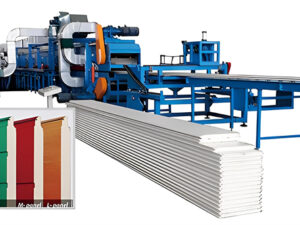 गेराज दरवाजा पैनल रोल बनाने की मशीन
गेराज दरवाजा पैनल रोल बनाने की मशीन -
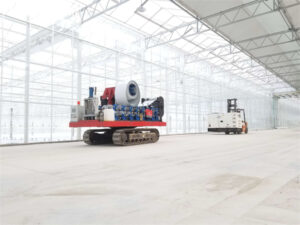 टैंक श्रृंखला के साथ ग्रीन आधुनिक कृषि गटर पैनल रोल बनाने की मशीन
टैंक श्रृंखला के साथ ग्रीन आधुनिक कृषि गटर पैनल रोल बनाने की मशीन -
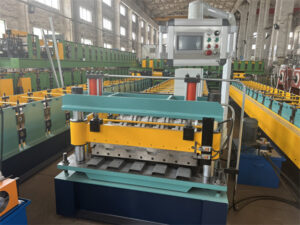 स्वचालित रूप से PPGI बाड़ पैनल के लिए रोल बनाने की मशीन चीन
स्वचालित रूप से PPGI बाड़ पैनल के लिए रोल बनाने की मशीन चीन -
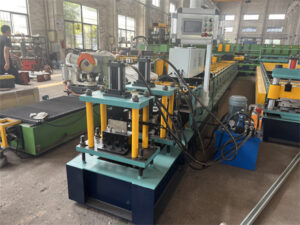 बाड़ गाइड रेल के लिए रोल बनाने की मशीन कंपनी
बाड़ गाइड रेल के लिए रोल बनाने की मशीन कंपनी -
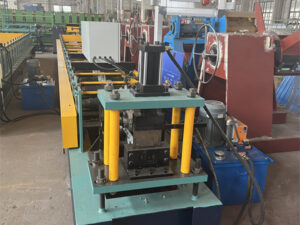 बाड़ पोस्ट गाइड रेल अच्छी कीमत के लिए रोल बनाने की मशीन की लागत
बाड़ पोस्ट गाइड रेल अच्छी कीमत के लिए रोल बनाने की मशीन की लागत -
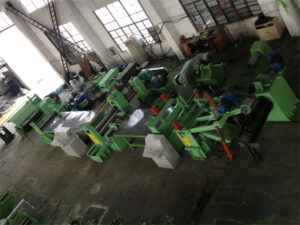 कट टू लेंथ लाइन
कट टू लेंथ लाइन -
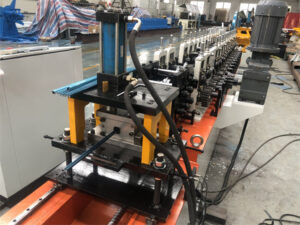 ग्लास विंडो सपोर्टर मशीन के लिए स्टेनलेस यू चैनल
ग्लास विंडो सपोर्टर मशीन के लिए स्टेनलेस यू चैनल -
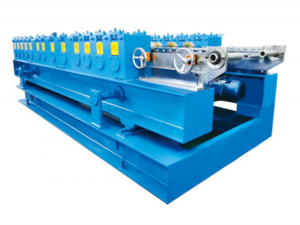 शटर बॉक्स सीरीज बनाने की मशीन
शटर बॉक्स सीरीज बनाने की मशीन
Can You Use a Downspout Pipe Forming Machine for DIY Projects?
While downspout pipe forming machines are primarily suited for industrial applications, there are a couple of scenarios where a DIYer might consider them:
- Large-Scale Renovation Projects: If you’re undertaking a major home renovation project that requires a significant number of custom downspouts, then a downspout pipe forming machine might be a justifiable investment. This is especially true if you require a unique profile or specific material that’s not readily available pre-made.
- Fabrication Enthusiast: For hobbyists and metalworking enthusiasts with the space, budget, and technical know-how, a downspout pipe forming machine can open doors to creative projects. You could use it to fabricate custom downspouts for sheds, workshops, or other outdoor structures.
However, before diving into the world of DIY downspout pipe forming, here’s a reality check to consider:
- Cost vs. Benefit: Industrial machines can be expensive, and unless you have a constant need for custom downspouts, the upfront cost might be hard to justify.
- Complexity of Operation: Operating a downspout pipe forming machine requires a certain level of mechanical aptitude and understanding of metalworking principles. It’s not as simple as flipping a switch.
- Safety Concerns: These machines can pose safety hazards if not operated correctly. Proper training and safety gear are essential.
In most cases, for DIY projects involving downspout repair or replacement, purchasing pre-made downspouts from a home improvement store is a more practical and cost-effective solution.
Alternatives to Downspout Pipe Forming Machines for DIYers
If you’re a DIYer tackling a downspout project, here are some alternatives to consider:
- Pre-made Downspouts: Home improvement stores offer a wide selection of pre-made downspouts in various sizes, materials, and colors. You’re almost guaranteed to find something that suits your needs.
- Cut and Fold Method: For a truly DIY approach, you can use sheet metal, a bender tool, and some elbow grease to fabricate your own basic downspouts. This method requires more effort and may not yield the most professional-looking results, but it can be a viable option for small repairs.
- Seamless Gutter Machines: These machines are similar to downspout pipe forming machines but specifically designed for shaping gutter profiles. If your project involves both gutter and downspout replacement, a seamless gutter machine might be a more versatile option.
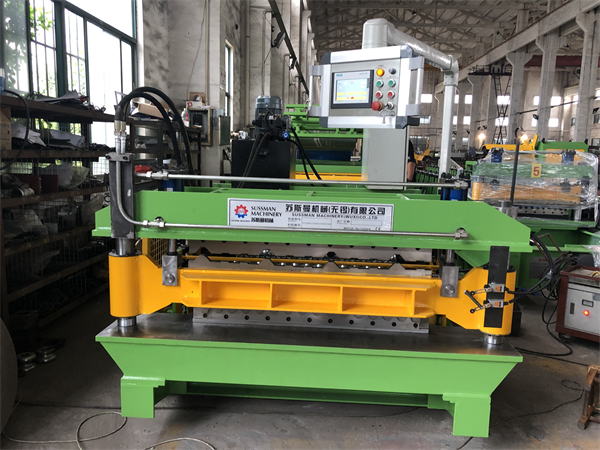
सामान्य प्रश्न
Q: What are the typical sizes of downspouts that a downspout pipe forming machine can produce?
A: Downspout pipe forming machines can typically produce downspouts in a range of sizes, commonly from 2″ x 3″ up to 4″ x 5″. Some machines may offer even wider size capabilities.
Q: What safety precautions should be taken when operating a downspout pipe forming machine?
A: Always wear safety glasses, gloves, and proper footwear when operating the machine. Ensure you understand the emergency shut-off procedures and keep long hair and loose clothing away from moving parts. Consulting the machine’s manual and following the manufacturer’s safety guidelines is paramount.
Q: How much maintenance does a downspout pipe forming machine typically require?
A: Regular maintenance is crucial for optimal performance and longevity. This may involve lubricating moving parts, keeping the machine clean, and inspecting for wear and tear on rollers and other components. Refer to the owner’s manual for specific maintenance recommendations.
Q: Where can I find a downspout pipe forming machine for purchase?
A: Several manufacturers and metalworking equipment suppliers sell downspout pipe forming machines. You can find them online or through industrial machinery distributors.
Q: Are there any resources available to learn more about operating a downspout pipe forming machine?
A: Machine manufacturers often provide instructional materials and video tutorials. Metalworking forums and online communities can also be a valuable source of information and tips.
In conclusion, downspout pipe forming machines are fascinating machines that play a vital role in the production of these essential building components. While they may not be a realistic option for most DIY projects, understanding their capabilities can empower you to make informed decisions regarding your next downspout-related task.
